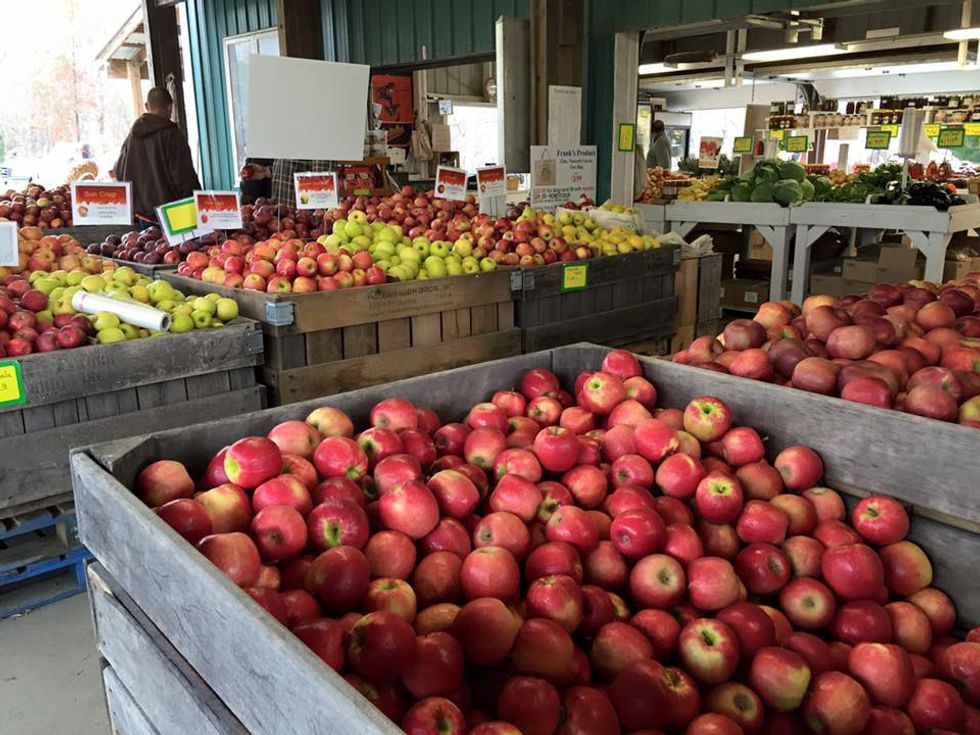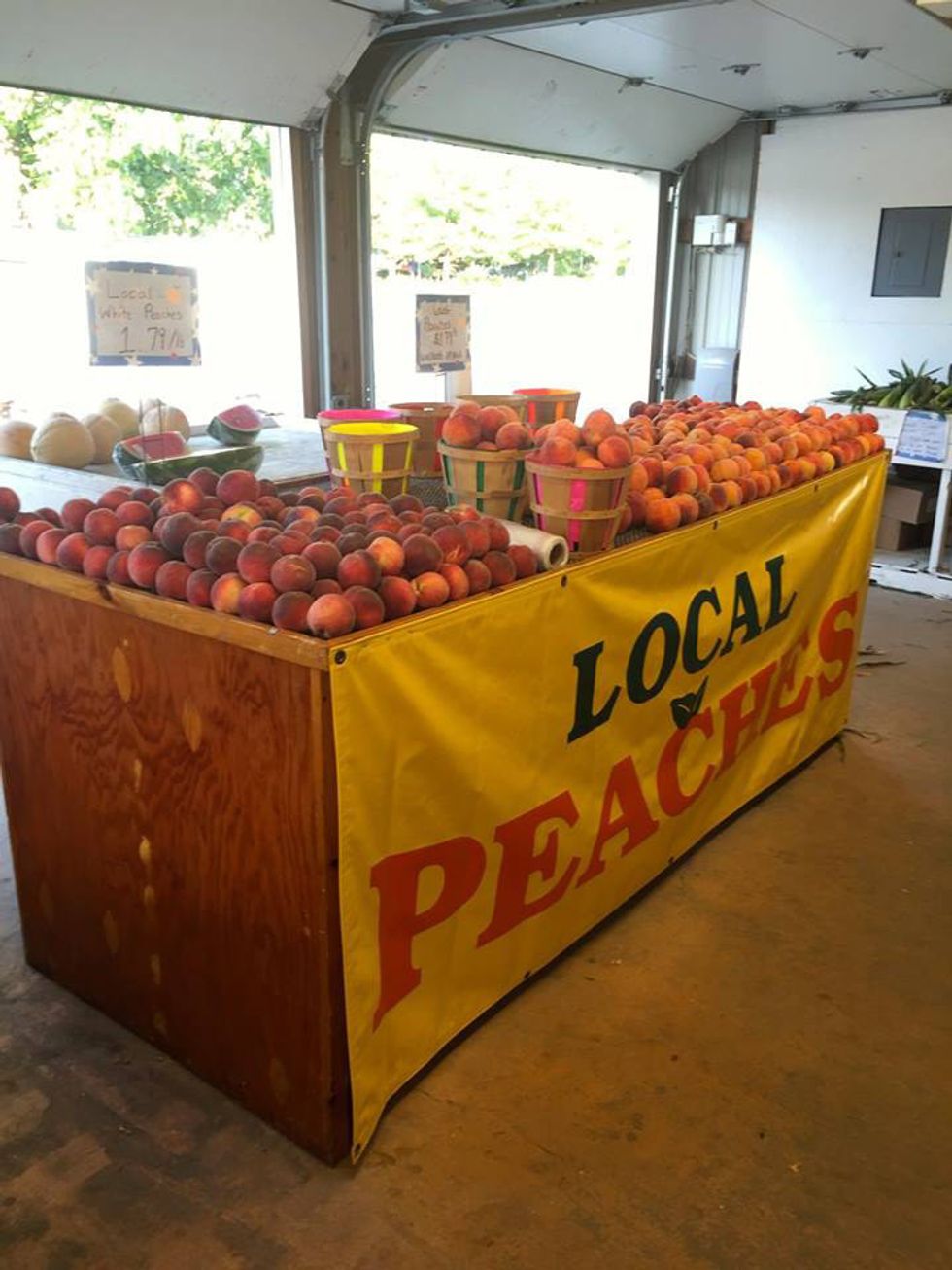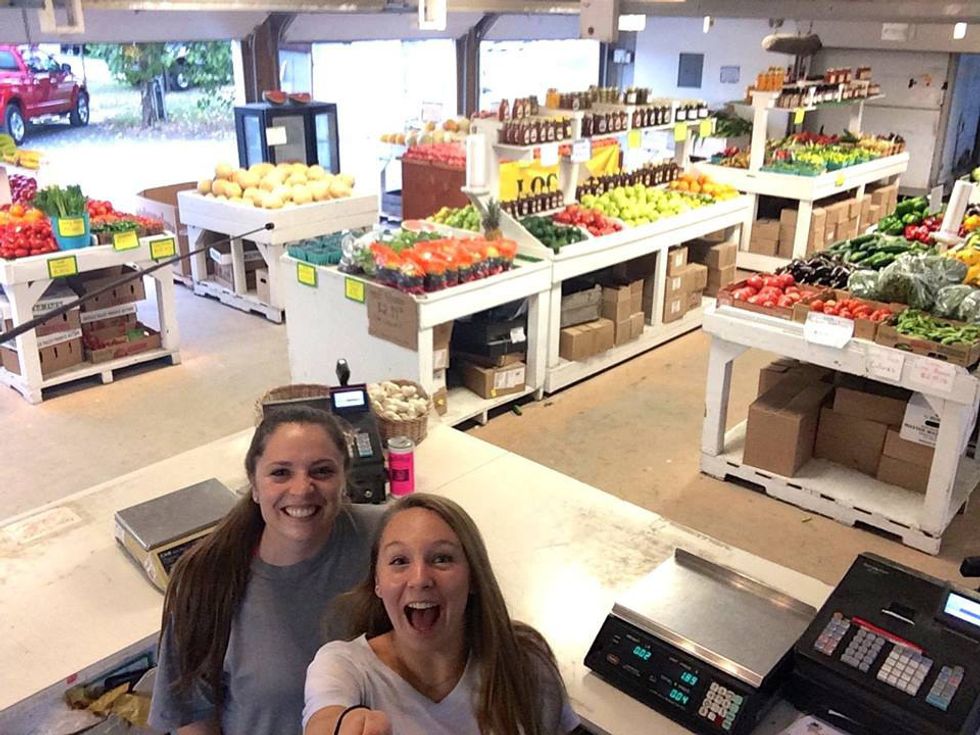Farmers’ markets are rapidly becoming a popular sight in our everyday lives as the farm-to-table movement gains popularity among younger generations. Once a breeding ground for hippies and hicks, farmers’ markets are more contemporary and advanced than ever before.
The origin of markets comes from pre-industrial America, in the form of small farms and trading posts. Fast-forward some hundred years, and we have general stores and eventually the modern-day grocery. As the rest of America fought to keep up with the quickly industrializing world, the food industry followed suit. The idea of small, local farms faded away and gave rise to factory farming and produce transportation. Today, the average fruit or vegetable travels 1,500 miles before it is sold, consuming 500 gallons of diesel fuel on the way. Not only is the produce industry reducing the nutritional value of fresh produce, it is contributing significantly to pollution by emitting mass amounts of harmful exhaust and devouring fossil fuels.
Because produce has to travel so far to make it to stores, farmers are forced to pick the fruit before it is fully ripened. Picking produce before it is ready stops the fruit from fully absorbing and producing nutrients and forces factories to chemically ripen produce before it is sent to grocery stores. A chemical commonly used for artificial ripening is calcium carbide. When combined with water, calcium carbide releases acetylene gases that artificially ripen fruits and vegetables. Other than altering taste and texture of produce, these chemicals are dangerous as they contain trace amounts of arsenic and phosphorous. Frankly, there's nothing natural about gas-ripened produce.
Aside from the concerning and unfortunate truth about mass-produced produce, there are many benefits of supporting local farms and businesses. Obesity is a leading cause of death in the United States. It has been proven that exposing children to healthy habits at a young age decreases their chances of being obese in adulthood. Farmers' markets provide access to fresh, healthy food and provide information on how food is grown and harvested in a fun environment. Farmers' markets benefit the community and have shown to be significantly more social than grocery stores. A survey shows that on average only 9 percent of customers in a grocery store have interactions with other shoppers, whereas at a farmers' market 63 percent of customers interact with one another. Many aspects of the community benefit from farmers' markets, including the economy. For every farmers' market, there are 3.8 new jobs created as a result.
In all, there are a lot of unfortunate side effects of a massive, industrialized food industry, but there are even more reasons to support local businesses. Farmers' markets provide fresh, seasonal food, and if you're lucky like me, a super fun first summer job!
Note: All pictures used in this article come from Frank's Produce and Greenhouses in Elkridge, Maryland.























